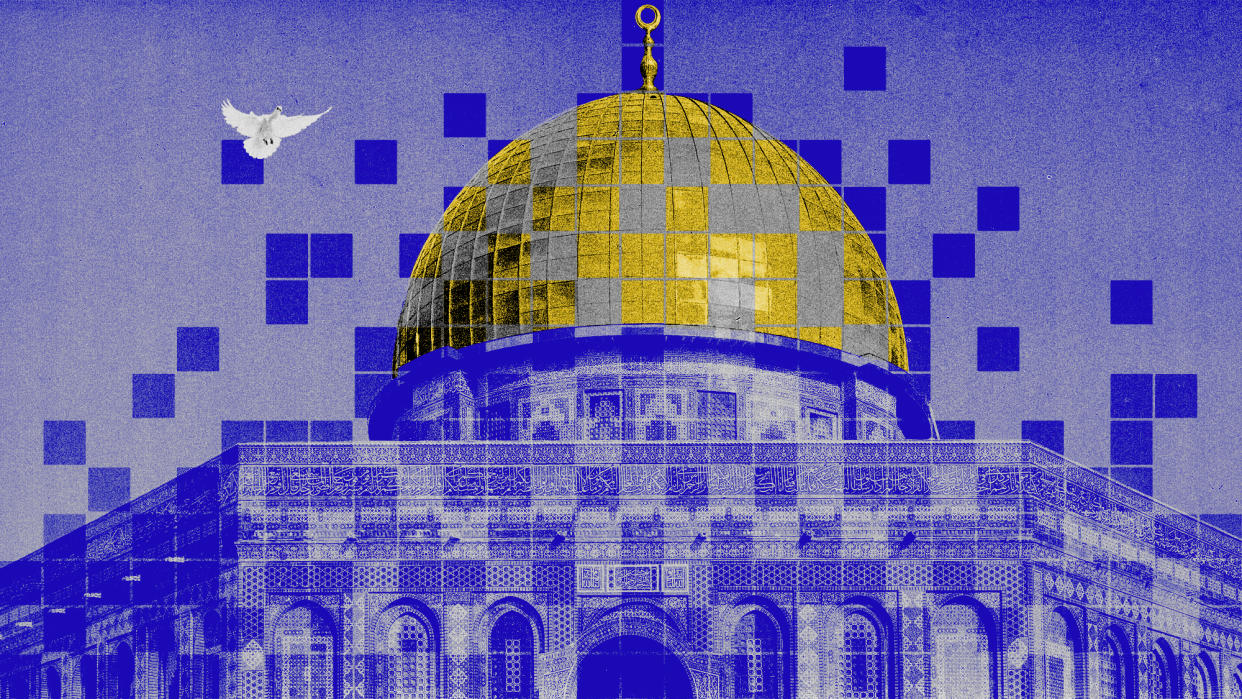Why are Israeli and Palestinian peace negotiators anxious about Ramadan?

- Oops!Something went wrong.Please try again later.
- Oops!Something went wrong.Please try again later.
President Joe Biden surprised many this week when he told reporters that he expected Israel and Hamas to agree to a long-sought-after cease-fire by "end of the weekend," saying that National Security Advisor Jake Sullivan "tells me that we're close." Biden's optimistic hope that "by next Monday we'll have a cease-fire" — delivered while filming a segment with late-night host Seth Meyers — comes as Israeli and Palestinian negotiators engage in "proximity talks" hosted by Qatar, in which each party meets separately with an intermediary, rather than face to face. It is a sign, Reuters said, that "negotiations were further along" than at any point since an early February cease-fire push.
The negotiations to end the months of horrific violence that have polarized the world and threatened to engulf the broader Middle East are by no means a guaranteed success. Despite intense international pressure, Israeli Prime Minister Benjamin Netanyahu has been adamant in his stated goal of continuing military operations to "eradicate" Hamas, while Hamas chief Ismail Haniyeh has accused Israel of using the negotiations "as a cover for this crime."
With much of Gaza reduced to rubble, and more than a hundred Israeli hostages still believed to be in Hamas captivity, cease-fire negotiators have begun voicing an added concern: that the start of Ramadan, Islam's holiest month, in early March, could be used as a pretense for violence that could undo all their efforts and plunge the region into further bloodshed.
What did the commentators say?
Ramadan, which starts the evening of March 10, "looms as an informal but urgent deadline" for negotiators, with Israeli officials saying they will pursue significant military operations in the southern Gaza city of Rafah if a deal isn't struck by then, The Wall Street Journal said. At the same time, Hamas' Haniyeh this week urged Palestinian Muslims "in the West Bank, in Jerusalem and within the green line to come en masse to the Al-Aqsa Mosque and fortify it on the first day of Ramadan," Haaretz said. Haniyeh's call sets up a potential for violence after Israel "set limits according to security needs" on the number of Palestinians allowed at the site for the holiday, Reuters said.
Israeli Defense Minister Yoav Gallant this week accused Hamas of conspiring with Iran and Hezbollah to seize upon Ramadan as an opportunity to enact the "second stage of Oct. 7," the date of Hamas' initial attack on Israel that triggered this latest round of violence, and "ignite the ground." The group's goal is to "take Ramadan, with an emphasis on the Temple Mount and Jerusalem, and turn it into the second phase of their plan," Gallant said during an Israeli Defense Force central command assessment on Tuesday.
Gallant also warned against "irresponsible statements from people who are supposed to be responsible" that could further escalate the potential for violence — remarks "apparently aimed at far-right National Security Minister Itamar Ben-Gvir," The Times of Israel said, noting that Ben-Gvir has pushed for further restrictions on Ramadan prayers at Al-Aqsa. While Gallant has been "a leading voice for smashing Hamas" he has also argued that doing so should go "hand in hand with reducing tensions in areas where there is no reason for there to be tensions" like holiday observance on the Temple Mount, the Jerusalem Post said.
What next?
Keenly aware that "Ramadan is closing in," cease-fire mediators in Qatar have "stepped up their efforts," one Palestinian official said to Reuters, adding that even with the time crunch, "things are not stalled."
Both Israeli and Palestinian negotiators may be looking to Ramadan as "part of an effort to increase pressure" and "make concessions" The Wall Street Journal said. "We've certainly seen the use of this arbitrary sort of deadline as a pressure point," said Sanam Vakil of London's Chatham House think tank.
Arbitrary or not, the days leading up to Ramadan are "pivotal" to the cease-fire negotiations, one U.S. official said to CNN. Israeli military aggression such as an attack on Rafah during the holiday "would only further inflame tensions across the region."

